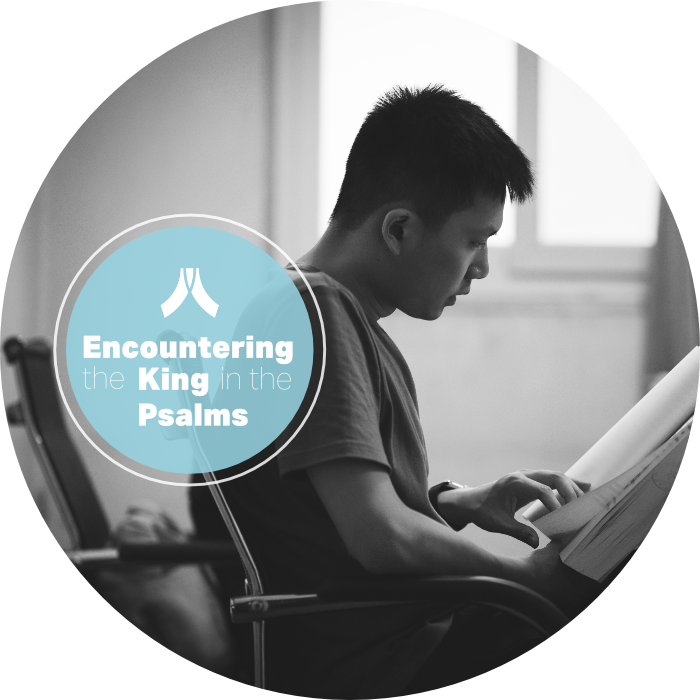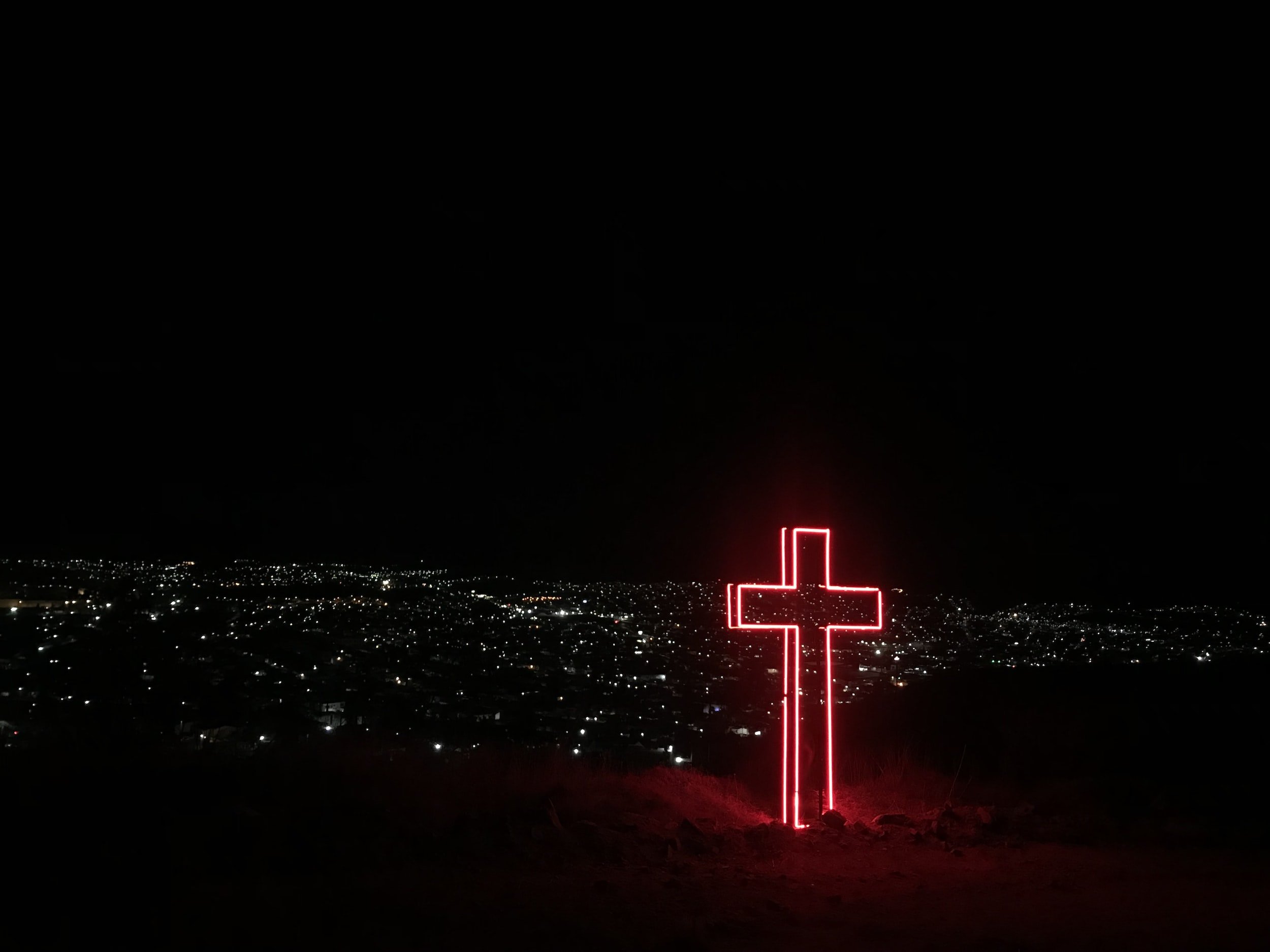
Psalm 48
A Song. A Psalm of the Sons of Korah.
1 Great is the Lord and greatly to be praised
in the city of our God!
His holy mountain, 2 beautiful in elevation,
is the joy of all the earth,
Mount Zion, in the far north,
the city of the great King.
3 Within her citadels God
has made himself known as a fortress.
Never miss a story
4 For behold, the kings assembled;
they came on together.
5 As soon as they saw it, they were astounded;
they were in panic; they took to flight.
6 Trembling took hold of them there,
anguish as of a woman in labor.
7 By the east wind you shattered
the ships of Tarshish.
8 As we have heard, so have we seen
in the city of the Lord of hosts,
in the city of our God,
which God will establish forever. Selah
9 We have thought on your steadfast love, O God,
in the midst of your temple.
10 As your name, O God,
so your praise reaches to the ends of the earth.
Your right hand is filled with righteousness.
11 Let Mount Zion be glad!
Let the daughters of Judah rejoice
because of your judgments!
12 Walk about Zion, go around her,
number her towers,
13 consider well her ramparts,
go through her citadels,
that you may tell the next generation
14 that this is God,
our God forever and ever.
He will guide us forever.
The psalmist begins by giving great praise to God. As he ends, he encourages people to fully enjoy the evidence of God’s presence. In the middle, the poet reflects on God’s attributes and his past actions. Throughout, the whole of Psalm 48 is focused on proclaiming the good news of God’s presence, which makes the hearts of God’s people rejoice.
Mount Zion: Place of God’s Presence
In the first three verses, the psalm gives praise to God for his earthly dwelling at Mount Zion. God is Lord of his covenant people, the great King of the universe. He is great and supreme in his sovereign rule over his kingdom. He is mighty and glorious, the only One who is worthy of the praise of mankind.
>
”“The whole of Psalm 48 is focused on proclaiming the good news of God’s presence, which makes the hearts of God’s people rejoice.”
But God’s own people, who dwell in Jerusalem, the holy city, have additional reasons to praise him. This great King chose to dwell among his own people “in the city of our God.” Here, “his holy mountain” is explicitly mentioned as Mount Zion and the city of Jerusalem. Mount Zion is the holy mountain: “beautiful in elevation [it] is the joy of all the earth.” The reason for these descriptions is because Mount Zion has the personal presence of God.
The Panic of Earthly Kings
In the second section, more reasons to praise God are described. The presence of this great King provokes two types of response: fear, and joy. The enemies of God’s people see what God has done and flee from him in terror. But the godly also saw these same works, and they rejoice. The God of Israel inspires both fear and joy: his enemies recoil in dread, while his own people rejoice.
The psalmist vividly portrays the collapse of God’s enemies, kings who are willing to unite against the city of God: “As soon as they saw it, they were astounded; they were in panic; they took to flight.” The verbs used here are clear: first the kings saw what God had done; then they panicked; and finally they fled in haste. This is exactly what history records happened when the Assyrian army attacked Jerusalem. The kings of the earth fled in terror at the sight of God’s glory. The psalmist also precisely describes the uncontrollable fear that welled up in the hearts of those kings: “Trembling took hold of them there, anguish as of a woman in labor.” (v. 6) Their experience was both sudden and painful.
Verse 7 paints another picture: “By the east wind you shattered the ships of Tarshish.” The ships of Tarshish formed a powerful ocean fleet in ancient times. Yet no matter their size, God caused the powerful east wind to come and immediately destroy the entire navy. God shocked the nations, easily repelling and destroying their hostile forces. Throughout redemptive history, the nations were affected by fear and their power vanished into thin air. All of this testifies to the presence of God. John Calvin encourages us to look to God, reminding us that God is sufficient to save us with just a nod of his head. Although our enemies are ready to attack us from all sides as they seek to subdue us, God, in the time that pleases him, will astound those enemies with his power. Even as they seek to attack us, God will make their hearts weakened and powerless. This thought checks our minds like a bridle, lest we look around, searching for human help.
>
”“The presence of this great King provokes two types of response: fear, and joy. The enemies of God’s people see what God has done and flee from him in terror. But the godly also saw these same works, and they rejoice.”
The Joy of Judah’s Daughters
When God revealed that he is a fortress for the godly, his people saw what he had done. They were even more convinced than ever that God himself had established his city for all time. Down the history of salvation, God’s people believe in the presence of the Creator of heaven and earth because of the things they have heard and seen. Throughout the ages, God’s people again and again witness the proof of his presence. He personally orchestrates all events in the world; he redeems his people. Because of what they have seen, God’s people respond appropriately with meditation, praise, and joy.
In this section of the psalm, joy and gladness spread from the peak of Mount Zion across the land of Judah. God’s people rejoice in his judgment, which is evident to them through his victory as he defeats the power of the enemy. Through judgment, God has established his kingdom.
This is God
The psalmist then invites God’s people to “walk about Zion, go around her, number her towers, consider well her ramparts, go through her citadels.” It is possible that, as part of a sacred ritual, pilgrims who had traveled to Jerusalem marched in procession around the city. The purpose of this careful walk-about was to enable the people to confirm for themselves that God was indeed exercising his protection over the city. Although the city of Zion had undergone many major attacks, yet it was still safe and sound.
>
”“God’s people believe in the presence of the Creator of heaven and earth because of the things they have heard and seen. Throughout the ages, God’s people again and again witness the proof of his presence.”
The psalmist went even further, asking the people to tell their children and grandchildren about God’s wonderful acts, so that they, too, might know his goodness and his miraculous power to protect his people. The psalmist told the people again what God had done, so that they might come to understand God’s works for themselves. He hoped that, as God’s people grasped the power and goodness of the Lord, they would then be inspired to give thanks. As they believe that this one God alone is their God, as they have no others gods besides him, then they praise him, for all the wonders they see and hear come from this one true God. Because of what he has done, they sing his praises for all of time.
The last verse of the psalm closes with these words: “This is God, our God forever and ever. He will guide us forever.” This is a beautiful picture of God leading his people until the time of their death. This great Shepherd gently guides his flock. He calls each sheep by name, and never leaves his flock. He guides, leads, protects, and watches over them to the end, forever and ever.
Shu Cao is a pseudonym for a pastoral intern at a church in southwest China.

We are using the Psalms to guide our prayers for China
In 2022, our prayer movement is turning to the scriptural prayers found in the Psalms as we pray for the Chinese church. When you join our prayer movement, you will receive weekly prayer emails and a monthly newsletter so that you too can pray for our brothers and sisters in China.


































